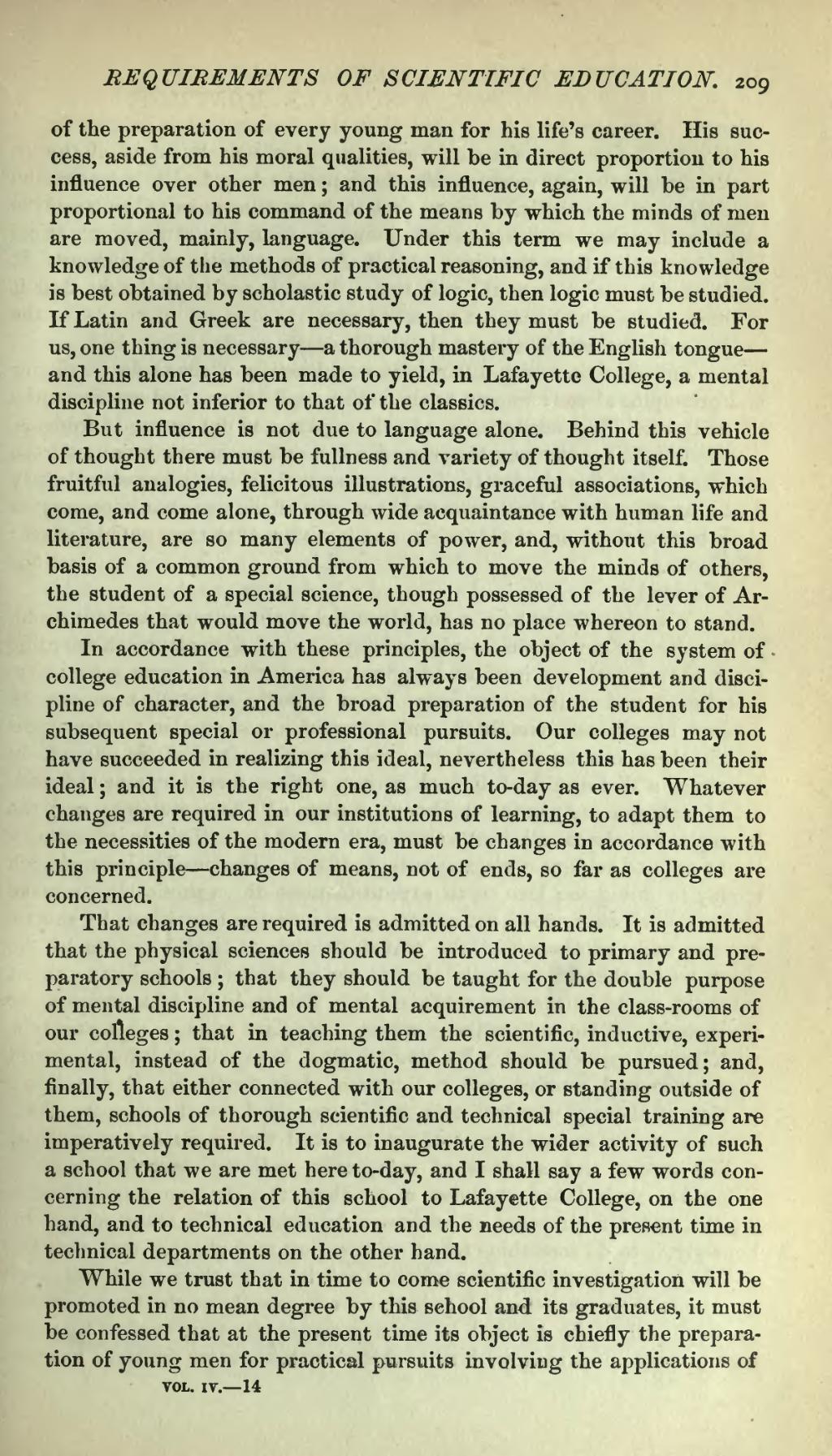of the preparation of every young man for his life's career. His success, aside from his moral qualities, will be in direct proportion to his influence over other men; and this influence, again, will be in part proportional to his command of the means by which the minds of men are moved, mainly, language. Under this term we may include a knowledge of the methods of practical reasoning, and if this knowledge is best obtained by scholastic study of logic, then logic must be studied. If Latin and Greek are necessary, then they must be studied. For us, one thing is necessary—a thorough mastery of the English tongue—and this alone has been made to yield, in Lafayette College, a mental discipline not inferior to that of the classics.
But influence is not due to language alone. Behind this vehicle of thought there must be fullness and variety of thought itself. Those fruitful analogies, felicitous illustrations, graceful associations, which come, and come alone, through wide acquaintance with human life and literature, are so many elements of power, and, without this broad basis of a common ground from which to move the minds of others, the student of a special science, though possessed of the lever of Archimedes that would move the world, has no place whereon to stand.
In accordance with these principles, the object of the system of college education in America has always been development and discipline of character, and the broad preparation of the student for his subsequent special or professional pursuits. Our colleges may not have succeeded in realizing this ideal, nevertheless this has been their ideal; and it is the right one, as much to-day as ever. Whatever changes are required in our institutions of learning, to adapt them to the necessities of the modern era, must be changes in accordance with this principle—changes of means, not of ends, so far as colleges are concerned.
That changes are required is admitted on all hands. It is admitted that the physical sciences should be introduced to primary and preparatory schools; that they should be taught for the double purpose of mental discipline and of mental acquirement in the class-rooms of our colleges; that in teaching them the scientific, inductive, experimental, instead of the dogmatic, method should be pursued; and, finally, that either connected with our colleges, or standing outside of them, schools of thorough scientific and technical special training are imperatively required. It is to inaugurate the wider activity of such a school that we are met here to-day, and I shall say a few words concerning the relation of this school to Lafayette College, on the one hand, and to technical education and the needs of the present time in technical departments on the other hand.
While we trust that in time to come scientific investigation will be promoted in no mean degree by this school and its graduates, it must be confessed that at the present time its object is chiefly the preparation of young men for practical pursuits involving the applications of

